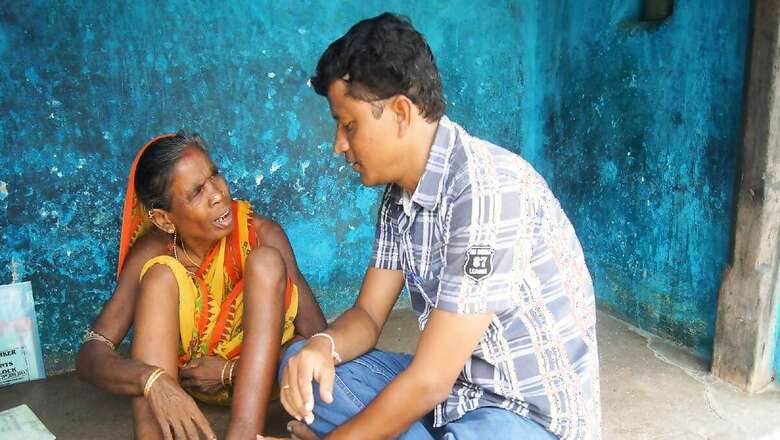
views
India has a proven track record of overcoming the most adverse challenges, be it economic, social, or complex health issues. Under the visionary leadership of Prime Minister Narendra Modi, there has been a paradigm shift in India’s efforts towards eliminating diseases, particularly Neglected Tropical Diseases (NTDs). The progress in eliminating diseases like Kala Azar (Visceral Leishmaniasis) has been groundbreaking, with all endemic blocks achieving the elimination threshold by December 2023.
India is also on the brink of similar success with Lymphatic Filariasis (LF), commonly known as haathi paon or elephantiasis. This entirely preventable disease currently affects people in 345 districts across 20 states and Union Territories, impacting both health and socioeconomic development. LF presents in two chronic conditions: lymphoedema – swelling of tissues or limbs, and hydrocele – swelling of the scrotum. These conditions lead to severe disability, with statistics indicating 6.19 lakh cases of lymphoedema and 1.26 lakh cases of hydrocele active today.
In response to this public health challenge, India had launched an innovative strategy in 2023, spearheaded by the then Union Minister of Health and Family Welfare, Dr Mansukh Mandaviya. The five-pronged strategy aims to achieve LF elimination by 2027, three years ahead of the global target. This strategy includes mass drug administration (MDA) campaigns twice a year, early diagnosis and treatment, engagement of medical colleges for morbidity management and disability (MMDP) services, Integrated Vector Control, and inter-sectoral convergence with allied departments. The strategy leverages digital platforms for LF and explores alternate diagnostics.
The ambitious program, led by the National Centre for Vector Borne Disease Control (NCVBDC), goes beyond conventional methods, addressing multifaceted challenges posed by LF. Following this direction, we have seen success. For instance, the bi-annual MDA campaigns achieved an impressive coverage rate of 82.5 per cent in 2023. The rounds provide free medicines to populations in endemic states, that are safe and can be consumed by all apart from children below the age of 2 years, pregnant women, and seriously ill individuals. Efforts are now underway to surpass a 95 per cent coverage rate in the coming years for widespread consumption of essential medications for LF prevention.
The Government of India is actively working to alleviate suffering through morbidity management and disability prevention services, utilising the Ayushman Bharat Pradhan Mantri Jan Arogya Yojana to provide financial provisions for hydrocelectomy surgeries. In 2023, 50 per cent of hydrocelectomy cases from 2022 were successfully operated, and 54 per cent of lymphoedema cases received MMDP kits. Ongoing efforts aim to eliminate the backlog of hydrocele surgeries and ensure 100 per cent distribution of MMDP kits, improving the quality of life for LF patients. The involvement of Ayushman Bharat Health and Wellness Centres (AB-HWCs) is crucial for enhancing LF outcomes.
Most importantly, integrated vector control efforts are crucial for elimination. Coordinated actions across multiple departments and public health issues are necessary to ensure that messages about curbing mosquito breeding, using tools effectively to prevent mosquito bites, and maintaining hygiene and sanitation are conveyed. Therefore, inter-sectoral convergence is vital for success, involving engagement from diverse stakeholders, including Panchayati Raj institutions, educational bodies, rural development agencies, tribal affairs departments, urban bodies, and medical colleges. These collaborations have proven successful during the MDA rounds.
As India strives to eliminate LF ahead of the global target, building upon past successes and addressing remaining challenges is crucial. By integrating government initiatives and leveraging the extensive network of AB-HWCs, India aims to enhance the accessibility and effectiveness of LF interventions, realising the vision of an LF-free India. The pioneering five-pronged strategy represents a paradigm shift, offering a comprehensive and globally replicable framework for LF elimination, laying the foundation for a future where LF is a distant memory, and communities thrive free from this preventable disease.
Dr Tanu Jain, is Director, National Center for Vector Borne Diseases Control (NCVBDC). Views expressed in the above piece are personal and solely those of the author. They do not necessarily reflect News18’s views.




















Comments
0 comment